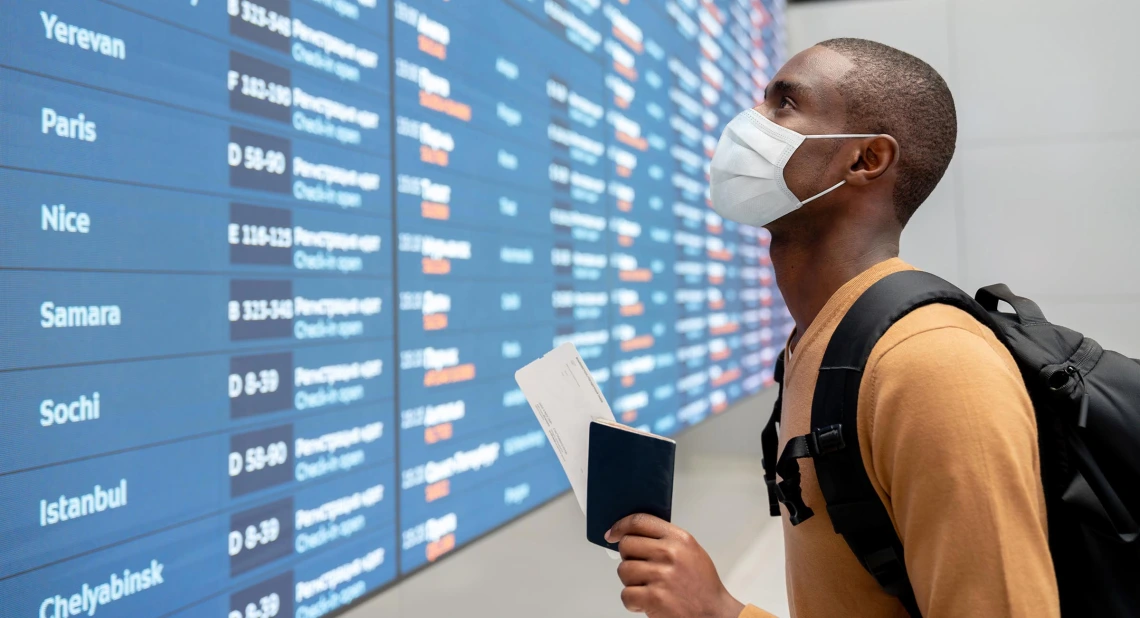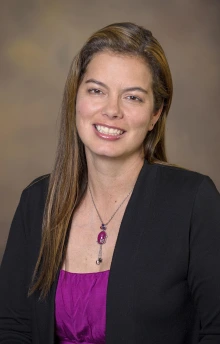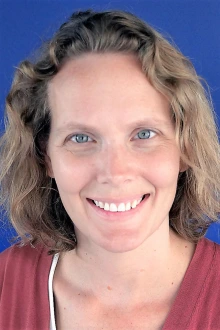The Story Behind a Conversation Success
Drs. Paloma Beamer and Kacey Ernst of the College of Public Health helped inform an anxious public about air travel during a pandemic.

If you must fly, make sure to mask up in the airport and on the plane.
When two University of Arizona Health Sciences professors at the Mel and Enid Zuckerman College of Public Health were asked this spring to write a piece for The Conversation, they didn’t anticipate a huge response. They simply agreed to write it because they were being asked to answer an interesting question: In the age of COVID-19, is it safe to get on an airplane, and if we do, how can we mitigate exposure risk? Walking readers through the decision-making process, the authors introduced them to complex scientific concepts at a ninth-grade reading level.

Paloma Beamer, PhD
“It was a neat process – we worked with an editor who took what we wrote and revamped it so it was a little bit more digestible,” said Paloma Beamer, PhD, associate professor of chemical and environmental engineering. “The whole thing went from idea to online in less than a week.”
It turned out that the public was hungry for that kind of information in the early days of the pandemic, especially as so much uncertainty swirled around the novel coronavirus. That hunger made it the first article for The Conversation penned by University of Arizona faculty to surpass 1 million page views. The authors fielded numerous requests to talk to reporters and appear on television.
“I’ve done media in the past, but never anything that went to this scale. It was pretty overwhelming,” said Kacey Ernst, PhD, MPH, professor and director of the epidemiology program. “It spoke to the fact that people were really craving information.”

Kacey Ernst, PhD, MPH
Dr. Beamer took on the majority of the interviews, talking to the media in both English and Spanish, and even appearing on prime-time news in India. Dr. Beamer, who is an exposure scientist and engineer by training, was pleased by the attention that the piece brought to her field.
“It was really exciting when the term ‘exposure scientist’ was on CNN’s front page. We’re not a field that’s used to being out in the limelight, even though exposures occur every day,” Dr. Beamer said. “I’ve been spending a lot of time increasing awareness of our field, because it’s so important in COVID. Until there is a vaccine, it’s actually exposure science protecting us: face masks, physical distancing, ventilation, surface and hand hygiene. These are all controls aimed at reducing your exposure and therefore risk.”
The response to the piece also offered the authors many opportunities to interact with the public. Dr. Ernst says her email inbox was overflowing.
“Being able to help somebody make a decision that’s a healthier and safer choice is exceptionally rewarding.”Kacey Ernst, PhD, MPH, director of the epidemiology program, College of Public Health
“I did respond to the emails people sent to me with any additional questions they had. That one-on-one contact is really rewarding, especially when people say you helped them make a decision,” Dr. Ernst said. “As a scientist, being able to help somebody make a decision that’s a healthier and safer choice is exceptionally rewarding.”
Both published related articles on The Conversation in June: 5 things you should do right now to fight the rising number of COVID-19 cases (Dr. Ernst) and Is it safe to stay in a hotel, cabin or rental home yet? (Dr. Beamer).
Drs. Beamer and Ernst encourage other academics to share their expertise with the public, no matter their discipline.
“I urge anybody in academia to talk about their expertise openly and engage people as much as they can,” Dr. Ernst said.
“It’s really freeing to write things for the public that are important scientifically, where you’re not as obsessed with citing everything, but just trying to get to why this is important and what you can do about it,” Dr. Beamer added. “It can be a cathartic experience during times like this, too.”

